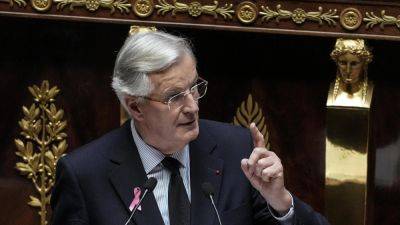Kishida's legacy: Scandals and compromise at home, global respect for security and diplomacy
Japan’s Prime Minister Fumio Kishida will resign Tuesday, handing over leadership to his successor Shigeru Ishiba, who says he plans to call a snap election for Oct. 27
TOKYO — Japanese Prime Minister Fumio Kishida will step down Tuesday, handing over leadership to his successor Shigeru Ishiba, who is expected to formally take office later in the day. He says he plans to call a snap election for Oct. 27.
Kishida’s popularity ratings were precarious during most of his three-year term due to damaging corruption scandals that eventually led him to bow out.
At home, Kishida was seen as a leader without a vision who compromised with powerful conservative nationalists within the ruling Liberal Democratic Party to stay in power. But he has won respect outside Japan, especially from the United States, for pushing bold changes in Japanese defense and security policies and for standing tougher against Russia and China.
Here is a lookback at Kishida’s leadership and his legacy:
After taking office in October 2021, Kishida made a number of major decisions, such as reversing Japan’s nuclear energy phase-out and pursuing a rapid military buildup. But he avoided controversial social issues related to gender and sexual diversity. As head of a smaller faction in the ruling party, his top priority appeared to be keeping a stable grip on power by avoiding clashes with members of the Liberal Democrats' powerful conservative group, led by the late Prime Minister Shinzo Abe.
Abe’s assassination in July 2022 and subsequent major corruption scandals linked to Abe’s faction members left constantly in damage control mode, as his support ratings tumbled. Kishida himself narrowly escaped an explosives attack during a speech at a fishing port in
Read more on abcnews.go.com






















